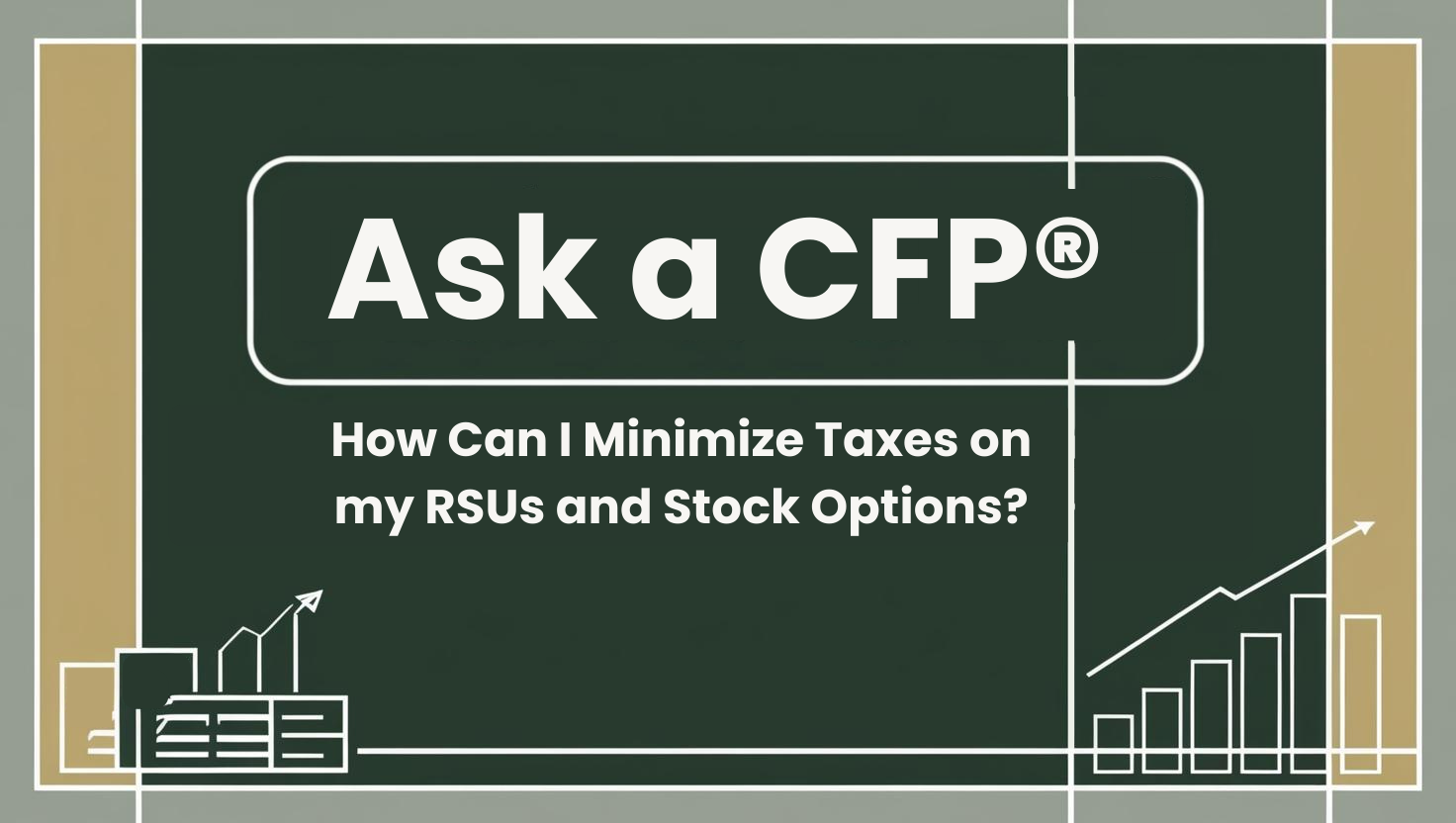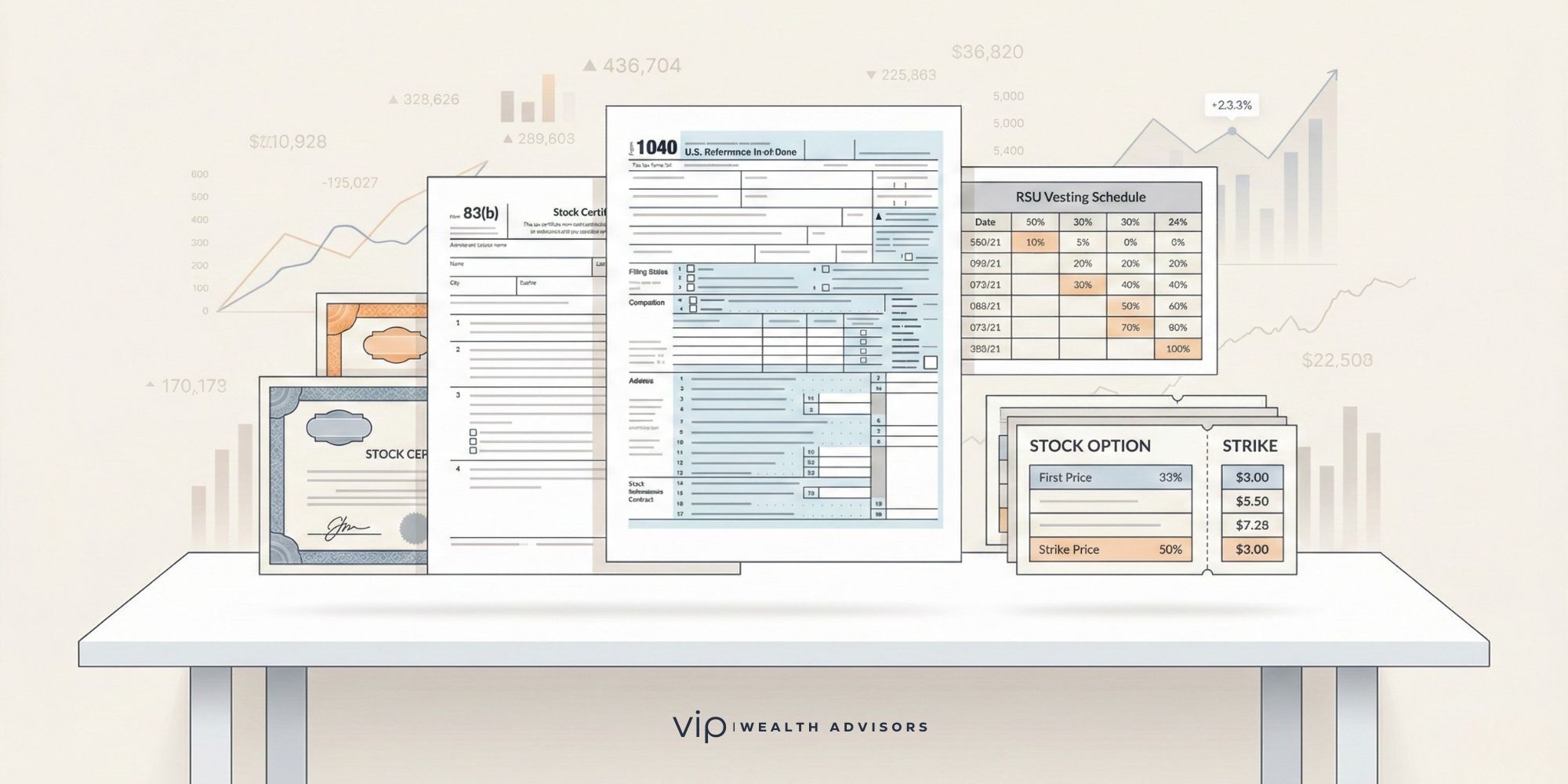Sitting on a pile of vested RSUs or stock options? Great—unless you're also sitting on a massive, unexpected tax bill. Here's how high earners can unlock equity wealth without triggering avoidable tax pain.
I’m often asked how to minimize taxes on RSUs and options, and while there’s no one-size-fits-all answer, there are proven strategies we use with our clients to reduce tax drag and maximize after-tax wealth.
Understand Your Vesting and Tax Triggers
First, it’s critical to understand how each type of equity is taxed. RSUs are taxed as ordinary income upon vesting, whether or not you sell. That means if you have a large tranche vesting in a year where you also have high cash compensation, you could easily be pushed into the top marginal tax brackets (hello, 37% federal plus state).
Stock options (ISOs or NSOs) are a bit more nuanced. With ISOs, you don’t owe tax when you’re granted or exercise them—but you may trigger Alternative Minimum Tax (AMT), which can catch people off guard. NSOs are simpler: you’re taxed at ordinary income rates at exercise on the spread.
Strategic Exercise and Diversification
Timing is everything. If you’re holding appreciated options or RSUs, it may be smarter to exercise or sell in years where your income is lower—perhaps after a sabbatical, career change, or retirement.
We often coordinate multi-year tax projections for our clients to identify ideal years to realize equity gains. If you’re charitably inclined, donating appreciated stock can also eliminate capital gains tax while giving you a deduction. That’s a win-win.
Also, remember: concentration risk is real. If your employer’s stock represents more than 10-15% of your net worth, you’re exposed. Don’t let tax concerns paralyze you into holding everything. A good advisor can help you unwind positions tax-efficiently.
Use a Tax Overlay Strategy
Sophisticated tax overlay strategies—like harvesting capital losses to offset gains, or pairing equity events with other deductions (e.g., real estate depreciation, defined benefit plan contributions)—can help high earners reduce or defer tax.
Our team often builds these strategies in tandem with CPAs, because you want to be managing your tax picture in real time, not just reacting at tax time.
Final Thoughts
Equity comp isn’t just about the numbers on your vesting schedule. It’s about timing, tax strategy, and understanding how it fits into your broader financial life—including other income sources, rental properties, and estate planning.
If you’re sitting on a large amount of vested equity or about to have a liquidity event, don’t go it alone. The right planning can mean the difference between handing over 40%+ to the IRS or keeping that capital working for you.








